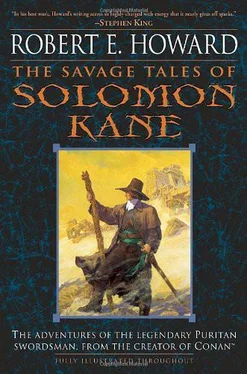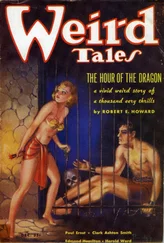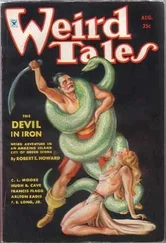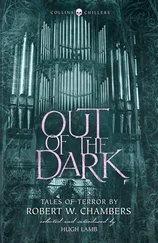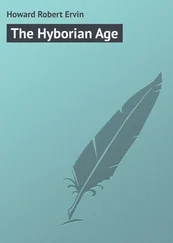“My favorite writers are A. Conan Doyle, Jack London, Mark Twain, Sax Rohmer, Jeffery Farnol, Talbot Mundy, Harold Lamb, R.W. Chambers, Rider Haggard, Kipling, Sir Walter Scott, [Stanley] Lane-Poole, Jim Tully, Ambrose Bierce, Arthur Machen, Edgar Allan Poe, and H.P. Lovecraft. For poetry, I like Robert W. Service, Kipling, John Masefield, James Elroy Flecker, [Robert] Vansittart, Sidney Lanier, Edgar Allan Poe, the Benets – Stephen Vincent better than William Rose – Walter de la Mare, Rupert Brooke, Siegfried Sassoon, Francis Ledwedge, Omar Khayyam, Joe Moncure March, Nathalia Crane, Henry Herbert Knibbs, Lord Dunsany, G.K. Chesterton, Bret Harte, Oscar Wilde, Longfellow, Tennyson, Swinburne, [George Sylvester] Viereck, Alfred Noyes, and Lovecraft.”
In addition to his reading, Bob Howard had a passion for oral storytelling. It is well attested that he frequently told his stories aloud as he typed them: his neighbors reported that they sometimes had difficulty sleeping at night because of the racket Howard was making. His youthful buddies in Cross Cut remember that he liked to have them all play out stories he made up, and the literary friends of his adulthood recall being often enthralled by the stories he would tell when they were together. He seemed never to tire of telling stories, though he generally would not relate a tale he was actually writing: he told Novalyne Price that once the story was told, he had difficulty getting it on paper. Sometimes, however, his oral stories were the inspiration or basis for the stories he would write. He loved, too, to listen to others tell stories: in his letters he relates how as a young boy he was thrilled and terrified by the tales of the family's cook, a former slave, and those of his grandmother. Novalyne Price remembers him sitting riveted by the stories of her grandmother, and that he loved to find old-timers who could relate tales of pioneer days. It may well be the quality of the oral story, the well-spun yarn, that makes Howard's stories so enthralling.
Howard seems to have determined upon a literary career at an early age. In a letter to H.P. Lovecraft he says that his first story was written when he was “nine or ten,” and a former postmistress at Burkett recalls that he began writing stories about this time and expressed an intention of becoming a writer. He submitted his first story for professional publication when he was but 15, and his first professional sale, “Spear and Fang,” was made at age 18. Howard always insisted that he chose writing as his profession simply because it gave him the freedom to be his own boss:
“I've always had a honing to make my living by writing, ever since I can remember, and while I haven't been a howling success in that line, at least I've managed for several years now to get by without grinding at some time clock-punching job. There's freedom in this game; that's the main reason I chose it.”
Whatever his reasons, once Howard had determined upon his path, he kept at it.
The Cross Plains school only went through tenth grade during Bob Howard's day, but he needed to complete the eleventh grade to qualify for college admission. Therefore, in the fall of 1922 Bob and his mother moved to Brownwood, a larger town that served as the county seat for Brown County, so that he could finish high school there. It was there that he met Truett Vinson and Clyde Smith, who would remain his friends until the end of his life: they were the first of his friends to share and encourage his interest in literature and writing. Smith, in particular, shared much of Howard's literary taste, and the two encouraged each other in writing poetry. Also at Brownwood High, Howard enjoyed his first appearances as a published author: two of his stories won cash prizes and publication in the high school paper, The Tattler, December 22, 1922, and three more were printed during the spring term.
After his graduation from high school, Howard returned to Cross Plains. His father, in particular, wanted him to attend college, perhaps hoping that he, too, would become a physician. But Bob had little aptitude for and no interest in science. He also claimed a passionate hatred for school. As he wrote later to Lovecraft: “I hated school as I hate the memory of school. It wasn't the work I minded; I had no trouble learning the tripe they dished out in the way of lessons – except arithmetic, and I might have learned that if I'd gone to the trouble of studying it. I wasn't at the head of my classes – except in history – but I wasn't at the foot either. I generally did just enough work to keep from flunking the courses, and I don't regret the loafing I did. But what I hated was the confinement – the clock-like regularity of everything; the regulation of my speech and actions; most of all the idea that someone considered himself or herself in authority over me, with the right to question my actions and interfere with my thoughts.”
Although he did eventually take courses at the Howard Payne commercial school, these were business courses – stenography, typing, and a program in bookkeeping; despite his interest in history, anthropology, and literature, Howard never took college courses in these subjects. During the period from his high school graduation in spring of 1923 to his completion of the bookkeeping program in the spring of 1927, he continued writing. While he finally made his first professional sale during this period, when Weird Tales accepted “Spear and Fang,” he also accumulated many rejection slips. Further, because most of his early sales were to Weird Tales, which paid upon publication, rather than acceptance, he found that the money was not coming in as he might have liked. He therefore took a variety of jobs during these years. He tried reporting oil-field news, but found he did not like interviewing people he did not know or like about a topic that did not interest him. He tried stenography, both in a law office and as an independent public stenographer, but found he was not particularly good at it and did not like it. He worked as an assistant to an oil-field geologist, and while he did enjoy the work, he one day collapsed in the fearsome Texas summer heat, which led him to fear that he had heart problems (it was later learned that his heart had a mild tendency to race under stress), so he was just as glad when the survey ended and the geologist left town. He spent several months as a soda jerk and counterman at Robertson's Drug Store, a job that he actively detested, and which required so much of his time that he had little left over for writing or recreation. Thus he made a pact with his father: he would take the course in bookkeeping at the Howard Payne Academy, following which he would have one year to try to make a success of his writing. If at the end of that year he was not making it, he would try to find a bookkeeping job.
During the summer of 1927, Bob Howard met Harold Preece, who would be an important friend and correspondent for the next few years. It was Preece who encouraged Bob's interest in Irish and Celtic history and legend: he had earlier shown some interest in the subject, and now, inspired by Preece's enthusiasm, it would become an active passion. He also met, the same weekend, Booth Mooney, who would become the editor of a literary circular, The Junto, to which Howard, Preece, Clyde Smith, Truett Vinson, and others contributed over a period of about two years.
After completing the bookkeeping course, Howard set about in earnest the business of becoming a writer. By early 1928, it was clear that he was going to be able to succeed in this, and indeed he never again worked at any other job. Weird Tales had published two Howard stories in 1925, one in 1926, and one (plus two poems) in 1927. In 1928 they would publish four stories (including the first Solomon Kane tale, “Red Shadows”) and five poems. From January 1928 until his death in June 1936, Howard stories or verse appeared in nearly three of every four issues of Weird Tales.
Читать дальше
